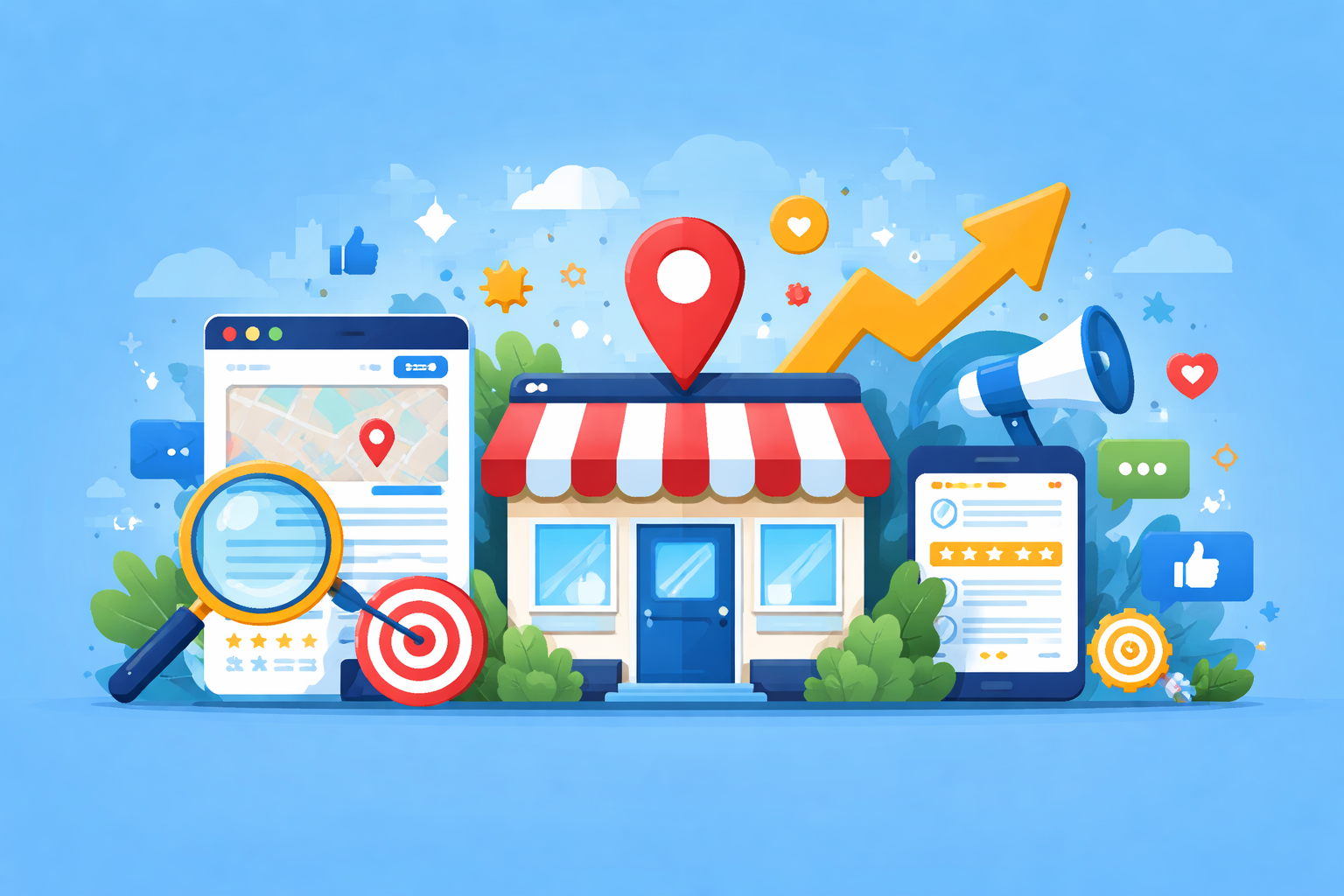Modern businesses exist in a constant and never-ending quest for their holy grail: better sales, higher ROI, and more customer satisfaction. Those who do not manage to keep pace with the competitors find themselves on the side of the road, on the side of life, on the side of success… Those who continue their search need shiny armor and a sharp sword to achieve their goal.
Despite such a romantic allegory, online marketing indeed has a lot in common with a fierce battle. It is the world where only the strongest, the cunniest, and the fastest survive. Sales and customer data are the resources needed to survive and keep moving forward, but any resource requires a tool to be gathered. The modern digital industry produces many tools for different needs and platforms, and for those who use Facebook, the tool is called Facebook Conversions API, and by creating custom events, you can sharpen it.
Traditions tend to outdate
Those who do not know history cannot move forward. Thus, let’s briefly go through the ways digital marketers were getting data before, what has changed since then, and why there is a need to master new tools. Things used to be much simpler at the dawn of the digital marketing sphere. There was nothing wrong with having a tracking pixel on the customer side, which recorded all the needed information about their activity on your website and passed it further to the analytical platforms.
It is important to understand that back then, the Internet was a domain with quite poor control over private information sharing and distribution. There were even talks about deanonymizing the whole network, which stopped after several examples of why privacy is important; one was provided by the IT and gaming giant – Blizzard Corp. The company wanted to make the player use only their real names on the forum, and one of the managers provided a personal example. Minutes after, all his personal data, from address to phone number, leaked to the tread as a demonstration of why online privacy is important.
It was the turning point in the Internet privacy controversy, and since then, privacy regulations and rules have only been tightening. As for today, none of the personal data is allowed to be shared with any third party without the owner’s consent, which they usually do not give (and it is understandable why). Moreover, people have more ways to optimize their online experience; for instance, they can use ad blockers to get rid of irritative advertisements. They have a side effect, though: blocking the scripts that track customer data. These are only some examples of why the old methods are not effective anymore and why there is a need for something new.
Facebook Conversions API saved the day
Facebook Conversions API is a server-side tracking solution developed by Meta Corp for accurate сonversions tracking on their platform. To be just, we must mention that many other social media platforms have similar tools: TikTok Events API, Snapchat Conversions API, etc. Facebook isn’t the only one offering server-side tracking; TikTok, Snapchat, and other platforms have their Conversion APIs, too. So, if you advertise on multiple channels, you can set up accurate tracking for each one individually.
Back to our “armor and sword”. Facebook Conversions API provides marketers who cooperate with the Meta platform can expect to benefit from the following advantages:
- bypass ad blockers and browser restrictions;
- improve data accuracy;
- better compliance with privacy regulations.
It tracks all the basic events that may happen on the Facebook platform: page views, leads, purchases, etc., sends them to the server, and pre-processes all the data before sharing it with the analytical platform. However, for those who want even deeper and more productive cooperation with the platform, there are custom events to explore.
What are custom events, and what are they used for
If you want to get a deeper understanding of the situation and Conversions, it makes sense to start using Custom Events together with the Facebook Conversions API. They can either be coded manually or added with the help of, for instance, Stape and track the specific actions important personally for you and exactly for your project. For instance, if you run an online shop advertised on Facebook, you can track such events as:
- a customer downloads a file;
- a customer submits a form (lead capture, contact, etc.);
- a customer views a video connected to your product in some way;
- a customer opens a chat.
In fact, this list can be much longer, it all depends on the particular events and actions you want to track for your business and which can be used to optimize your ads.
Why do custom events matter
Trends may be different throughout the years, and it won’t be wrong to say that nowadays, the trend is for personalization. People pay attention to the ads aimed directly at them, which consider their interests, likes, and needs and offer something they might need at that very moment. It is the reason, by the way, why TV ads are losing their effectiveness: people do not want to look for stuff and choose stuff; they want all this work to be done for them, and they only want to get the result.
Custom events allow you to build a detailed customer profile with their needs, intentions, preferences, problems, and possible solutions to those problems. For instance, if you track that a person spends a lot of time surfing pages with flat-screen TVs, you can start sharing attractive offers, promo codes, etc., to encourage a purchase. Such tracking drastically enhances attribution. Instead of seeing only the completed conversions, you will be informed about potential and failed conversions and be able to optimize the whole process to turn them into completed.
A tandem of Facebook Conversions API and Custom Events
Custom Events allow you to personalize your services. Facebook Conversions API guarantees minimal interaction from ad blockers and browser restrictions. Moreover, with its help, you can protect yourself from the legal side by encrypting or removing all personal information before the data package is sent to the analytical platform.
What do we get in the end?
Of course, you get an overall boost in your ad performance. However, that’s not all. By “feeding” the Custom Event data to the Facebook algorithms, you basically teach them and allow them to adapt to the situation and optimize ad targeting together with automated bidding strategies. Here is a more detailed explanation of how it works.
- The client’s behavior is tracked with a Custom Event.
- The data about this action is sent to Facebook via the Conversions API.
- Facebook analyzes the received data and optimizes its algorithms to show the right ads to the right audience at the right time.
In short, by uniting Custom Events with the Facebook Conversions API, you get insight into your customers’ whole journey, from the moment they start to explore the idea to the moment they pay for the goods they buy. This would have been impossible with the classic client-side tracking.
Benefits of driving sales
Everything we mentioned here is great, but what is the practical application of all the benefits discussed, and is it possible that custom event tracking has no effect? Well, anything can happen, but a proper and thoughtful combination of Facebook Conversions API and Custom events leads to a great boost in sales performance.
- Increased ROI. More accurate and detailed data shared with Facebook means your ad campaigns become more effective, budget wastes become smaller, and the overall result and benefits keep growing.
- Improved attribution. Custom events allow you to get a better understanding of who your client needs, what they need, and what stops them from buying from you.
- Better retargeting. With custom events, you can track the customers who haven’t converted yet and offer them other options, driving them to return and complete the sale.
The overall idea is to create a more efficient sales process that will allow you to tune and manage your marketing efforts to boost the results and increase the benefits.
Known issues you should be ready to face
Despite all the power and benefits of server-side tracking, Facebook CAPI, and Custom Events, there are several challenges you should be ready to face (it does not mean you will, though).
- Setting everything up and mapping all the data properly is not a task for anybody. You either need to deep-dive into the technical part of the topic yourself or find a company that will help you with configuration. If you are not sure about your skills or do not have a clear understanding of how to do that, it is better to stick to the second variant.
- There can be delays in synching your server with the Facebook systems, and in this case, custom events may not be registered correctly. It is not something you can directly influence, but it is a good practice to monitor your server performance.
- There are some limitations to the custom events you can track. For instance, some micro-interactions, like clicking a specific button or hovering over something, may not be so easy to capture.
In any case, whatever the challenges are, the benefits you get from using Facebook CAPli with Custom Events outweigh all of them.
Conclusion
A combination of Facebook Conversions API and Custom Events is a great solution for all businesses that want to stay up-to-date with the modern style of eCommerce and hop even further than that. Know your customers better by not only understanding what they need but also why they do not buy from you, at what stage they change their minds, and what types of ads/product presentations they give credit to.
Yes, implementing both CAPI and Custom Events requires you either some basic understanding of how they work or cooperation with a platform specializing in this, but the benefits you get from that are undeniable. You get a better understanding of customer behavior, more accurate data for all your marketing activity, and, as a result – improved performance. It is your digital search for a marketing holy grail, where you have a map in your left hand and a sharp sword in the right. You know what to expect and how to deal with it.
Published: June 16, 2025





